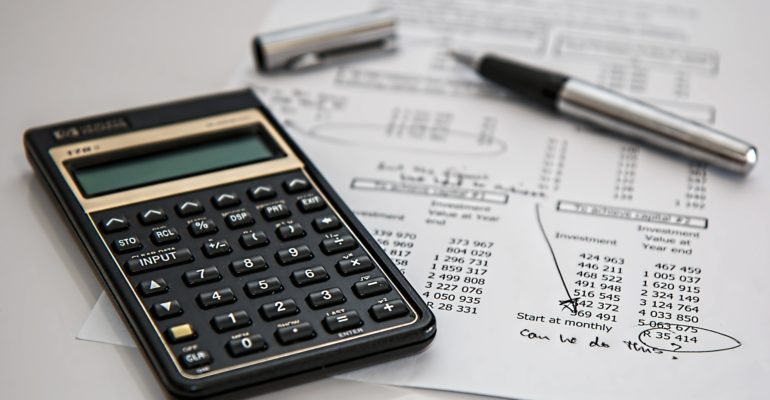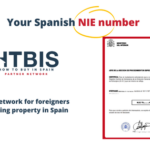 Reading time 4 minutes. Use our table of content for a quick read.
Reading time 4 minutes. Use our table of content for a quick read.
Last Updated on 29/03/2023 by STEPHANE
Click on any flag to get an automatic translation from Google translate. Some news could have an original translation here: News Nouvelles Nieuws Noticias Nachrichten
What taxes do you have to pay on your Spanish property?
This paper will cover the three different tax issues related to the acquisition of a property in Spain:
- the acquisition of a property (newbuild or resale),
- the ownership of a property, and
- the sale of the property.
The case of a newbuild property
- VAT is 10% for residential properties everywhere in Spain as the VAT is a national Tax. The VAT is 21% on plots, garages and storage rooms.
- Stamp Duty of 1.5% for almost all Spanish regions.
As a reminder, of course, there are other expenses than taxes related to the acquisition: Notary fee: The notary fee for the purchase of a typical residential property would vary between €500-€2,500. Land Registry fee: normally, the land registry fee amounts to 50-70% of the notary fee and legal fees.
The case of a resale
The transfer tax varies between 8 and 10% and is different for each autonomous community.
If you want to read more on that subject, our legal and tax partner in the region of Barcelona, Maite, wrote a few interesting articles:
Tax Residence. Why is it important for you? Definition and examples (Part I)
Tax Residence, Why is it important for you? Why do you have to pay taxes in Spain? (Part II)
This is another one written by Juan another legal partner in Barcelona: How can we calculate the Transmission Tax on a Spanish Property?

As a foreigner, you will be taxed in your home country usually on your worldwide income. As an owner of a property in Spain, you will have to pay a few taxes. In order not to tax you twice, most of the time, your home country has a tax treaty with Spain to solve the issues. Usually, there is a tax treatment different depending on where you are from. Are you from EU or from outside the US. A second issue that will help to know which tax treatment you should have on the property is related to the use of the property: Do you plan to use it for yourself or do you intend to rent it? Please note that short-term rental (usually periods of less than two months) most of the time requires an authorisation from to autonomous region and from the town hall. The regulations are different for each autonomous regions in Spain. Two interesting reads on this subject are those two articles: An update on the short-term rental regulation in Andalusia and Tourist apartments in Spain.
The lawyer will search for the Cadastral Value of the property and will check if the previous owner paid the IBI tax.
The non-resident Income tax is paid to the Spanish Tax Authorities
There are two cases:
If you don’t rent your property
You will be taxed with a fixed percentage (usually 1.1%) on the cadastral value of your property: this amount is supposed to be your income
- you will pay a 19% tax on that amount if you are a European Union Citizen
- you will pay a 24% if you are not a European Union Citizen.
If you rent your property
- You will be taxed on your net rental income at a 19% rate if you are a European Union Citizen and
- 24% on your gross income if you are not a European Union Citizen.
That means that sometimes you can deduct some expenses and that’s why your legal and tax adviser will save you money here: … no fines… and deductions to diminish your rental income.
Have a look at two events that occurred to customers from our Tax partner in Barcelona, Maite: “I remember a case in which a foreign client acquired a home in Spain as a second residence, to occupy it during his vacations. It turns out that in Spain, a person having a second home must pay taxes on it, which this client did, by paying 24% on the established taxable base, for the days of the year in which the house was not occupied. What this client did not know was that for residents in the European Union and in the European Economic Area the applicable tax rate is 19%, but the period to be considered is the whole fiscal year, not only empty days.”
“In another instance, a foreign client had rented a house in Spain. He declared the gross income because he had been told that non-residents cannot deduct any kind of expense. What he did not know is that this rule is not applicable to residents of the European Union and the European Economic Area, as it was the case. The latter has a more favourable treatment, having the right to deduct the same expenses foreseen for residents in Spain, being taxed accordingly for a lower profit margin.”

Wealth Tax in Spain
If you are a resident, you will be taxed on your worldwide assets, if you are non-resident with Spanish assets above 700.000 Euros, you will be subject to the wealth tax. The rates are starting at 0.2% and scale up to 2.5% if you have more than €10m.
The local Tax, or IBI Tax
Is a fixed amount calculated from your Cadastral Value that you have to pay to the town hall.
Further reading on the tax related to your Spanish property:
Do you plan to buy or rent a property in Spain? Consult your property tax advisor in spain first!
Do you want to rent your property in the Costa Blanca or in the Valencian region?
You are not already selling your property but, it is already good to know. Maybe, knowing this, you will change the way you structure your purchase. Should you buy with bare ownership for your children and Usufruct for yourself? Should you buy within a company structure?
Two taxes are due at the time of sale, whether this is done by a non-resident natural person or legal entity:
- The so-called “Municipal Surplus Value” (“Plusvalía Municipal”), a tax again of a local nature that in this case taxes the increase in the value of the land over the years. It must be settled by the seller at the corresponding City Hall within one month from the conclusion of the operation.
It should be noted with respect to this tax that there is great controversy in Spain regarding the way to calculate it by the municipalities, both because there might not be a real increase in the value of the land due to the crisis, and also because the formula used is not adequate. When the amount is high, it is very convenient to consult a professional to evaluate the convenience of filing an appeal before the Courts.
- And, again, the Non-Resident Income Tax: it is calculated on the capital gain obtained on the sale (sale value less acquisition value), which is taxed in this case at a 19% rate, be the seller EU resident or not.
Note that the buyer, when buying a property from a non-resident, is obliged to withhold a 3% on the sale price and pay it to the Tax Authorities within a month from the sale.
The seller will subtract the amount withheld in the result of his Non-Residents Tax declaration, which must be presented in the 3 months following that former month. Should there be a difference in his favour, he is allowed to be refunded.
Further reading on the subject:
Property purchase in Spain with usufruct and bare ownership
This article: “Part IV. Tax aspects related to your Spanish property: acquisition, ownership and sale of your Spanish property
Introductory paper: Why do you need independent legal and tax partners for your property acquisition in Spain?
Part I. Buying a property in Spain: Is a Spanish Notary enough? Why is an independent Spanish lawyer strongly advised?
Part II. Buying a property in Spain as a foreigner: Are you allowed to buy a property in Spain as a foreigner? Do you need a Visa? Who is buying? How do you finance?
Part III. Legal due diligence on your Spanish property
Part IV. Tax aspects related to your Spanish property: acquisition, ownership and sale of your Spanish property
Part V. Inheritance, Estate Planning and Granting a Will in Spain
For easiness of reading, it is split into five different articles: they could be read one after the other or separately.
Looking for a real estate lawyer in Spain? Follow the link and get one of our local lawyer.
Looking for another real estate expert in Spain: Mortgage, Insurance, Survey of property, Property hunting, …? Ask us directly one of our 100+ local partner!
[/insert_php]






